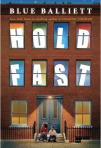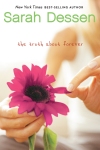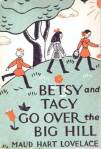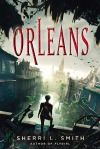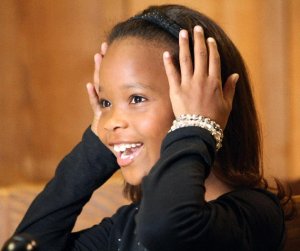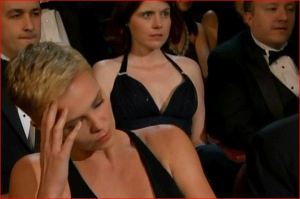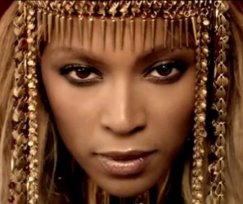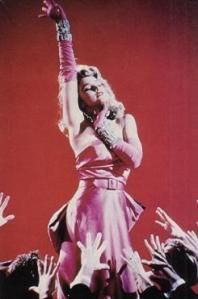Archive for May 2013
I’ve read few books that have made me as angry as Rishe-Gewirtz’s debut novel, Zebra Forest, has.
[Caution: Serious spoilers ahead!] Read the rest of this entry »
Friday Five
Posted on: May 24, 2013
- In: Friday Five | Lists
- Leave a Comment
Five Must Read Posts
- The Rape of James Bond by Sophia McDougall
- We Have Always Fought by Kameron Hurley
- On Grittiness and Grimdark by Foz Meadows
- Historically Authentic Sexism in Fantasy: Let’s Unpack That by Tansy Rayner Roberts
- The Omniscient Breasts by Kate Elliot
Reading Russ – Part 5
Posted on: May 18, 2013
Chapter 4: Pollution of Agency
Russ spends much of this chapter demonstrating that even though it’s no longer scandalous for women to be writers or actresses, women writing about certain aspects of their lives is still considered immodest and renders the author unfit and unloveable in the eyes of popular culture.
Sadly, I think the mores of the past are not nearly as diluted as all that. Actresses may no longer be considered “used goods” but sometimes it seems only barely. As I was reading this chapter my mind kept going back to the appalling behavior of this year’s Oscar host. Not just when McFarlane called then nine year old Quvenzhané Wallis a gendered, sexual slur on national television. Not to mention the myriad of other gendered and sexualized insults aimed at the women that were supposedly there to be honored. But also how important it was to the punchline in his “We Saw Your Boobs” song and dance that the actresses mentioned felt ashamed for having done the job they were paid to do. To the point that, rather than leaving it to chance, they filmed staged reaction shots showing the actors mentioned hiding their faces and looking shocked and embarrassed. This wasn’t just a silly song about boobs, it was above all a song about how it’s shameful to be a woman who has let the public see her breasts.
Let’s also not pretend that this scorn of women performing sexuality is something only raving sexist pigs do.
This morning my timeline was all a-twitter over Ms. Magazine’s Spring 2013 cover story about Beyonce, her feminist viewpoints, and her work as a performer. Most of the women of color that I follow were rightly pointing out that Mainstream (= White) feminists and feminist organizations are a lot quicker to question the feminist credentials of performers of color, while at the same time defending white feminist creators (such as Lena Durham), even when their version of feminism is clearly problematic.
I wonder too if there’s not something to the fact that Beyonce’s public persona, unlike Madonna’s or Lady Gaga’s, is perceived to be Diva rather than Avante-Garde. There’s echos of the porn wars here, with Lady Gaga being given a pass where Beyonce is not because the latter is perceived as showing off her body only because it makes her money, while the former is assumed to be showing skin in order to make an artistic statement.
An assumption that is also racist. First for ascribing loftier goals to the white performer. But also in they way that this viewpoint assumes that black women’s experiences with the Beauty Myth are (or should be?) the same as white women’s, when that’s clearly not true. Beyonce being beautiful, talented, and sexy during the Super Bowl half time show means something very different culturally than a white female performer doing the same. Any discussion of her feminism that doesn’t take that into account is going to fail by definition.
In conclusion, knock it the hell off Ms. Magazine; I suspect Russ would be very disappointed in you today.
Pippi to Ripley 2013
Posted on: May 17, 2013
Apologies for the radio silence, I’ve been a bit busy lately.
Class finished up last weekend. The weekend before that I flew out to New York (state) for Pippi to Ripley, an academic conference on “the female figure in fantasy and science fiction.”
I presented on how the media talks about science fiction “for girls” and got to meet Tamora Pierce, who gave the keynote speech. Ms. Pierce was so very nice and spent a good deal of time with everyone who wanted her autograph, talking to them about her books and answering questions.
As you can guess, it was a great weekend. It was also a friendly but low key conference; I strongly recommend it for fans in the area and/or other first time presenters looking for a place to get their feet wet.
However, I’m completely crap at taking notes at these things, so if you want more detailed information, I suggest heading on over to Kate Nepvue’s livejournal. Be sure to check out her post about her own presentation as well, it was quite interesting and well done.
Reading Round-up 2013: Week 13
Posted on: May 11, 2013
When a never ending winter threatens the kingdom, it’s clear to everyone why the oracle stones have chosen Taisin, one of the most promising students at the Academy of Sages, as part of the envoy sent to the Fairy Queen for help. What’s less clear is why Kaede, the very unmagical daughter of nobles, is chosen to go along as well. But Kaede’s addition to the small group makes Taisin nervous for an entirely different reason; Taisin has been having disturbing and prophetic dreams about Kaede.
The pacing here was much better than in Ash, the characters deeper and full of life, and the plot had more purpose and direction. Where Ash was interesting and angsty in a mellow sort of way, Huntress was much more complex and immediate, and the action moved more quickly and came with more tension. There was still room for improvement, but it’s a good story overall. And yes, the romance between Taisin and Kaede is a big part of what makes it enjoyable.
The volcano that appeared out of nowhere in the middle of Lake Ontario is the least of Scotch’s problems. She’s more concerned with finding her older brother, getting rid of the tar-like rash she’s picked up, and dealing with the disembodied horse heads that have started following her.
This was an odd story. Not necessarily in a bad way; much of the oddness was fun even if it didn’t make any sense most of the time. The problem came, as it often does in Wonderland stories, in wrapping everything up. Lessons were Learned, Relationships Grew, and Nothing Was Ever Going to Be the Same – but how exactly does one return from Wonderland when the problem is that Wonderland has come to you?
That said, I suspect much of the story not making sense to me has to do with my ignorance of various myths and tales from non-Western, so I may have to reread it after having done some more research.
Also, may we have more YA characters like Scotch please? In speculative fiction in particular. All too often the Scotches of YA, when they exist, get relegated to realistic fiction; I, for one, would like to see more of them taking on volcanoes, Baba Yaga, and whatever else the universe might want to throw at them.

